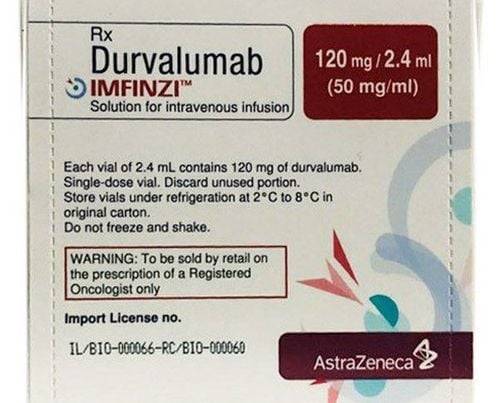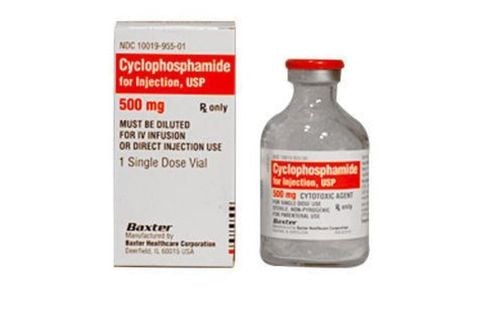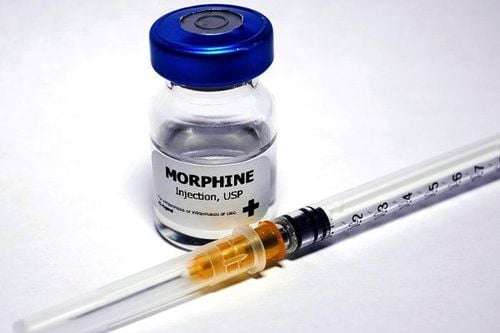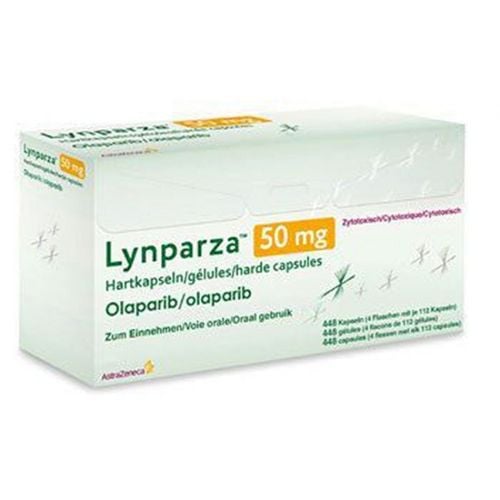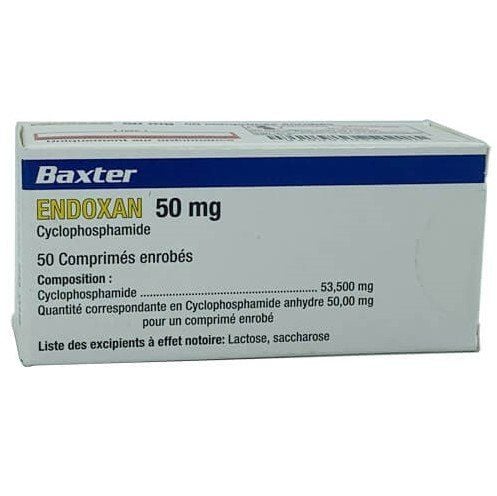This is an automatically translated article.
The article was written by doctors of Internal Oncology - Radiation Oncology Center, Vinmec Times City International Hospital.The new study builds on previous research showing significantly improved survival with peritoneal chemotherapy compared with systemic chemotherapy.
1. Purpose of the study to compare intraperitoneal (IP) and systemic (IV) chemotherapy
A phase III clinical trial GOG-252 by Dr. Walker et al (of the University of Oklahoma Health Sciences Center) was published in the Journal of Clinical Oncology and presented at the ASCO 2919 Conference in Chicago. , USA. Comparative study of two regimens of intraperitoneal (IP) and systemic (IV) chemotherapy for ovarian carcinoma. The results showed no difference in progression-free survival (PFS) between the groups. Carboplatin IV and IP regimens are better tolerated than cisplatin (2 drugs both belong to the same platinum group)Purpose: To evaluate the impact of two regimens of intraperitoneal (IP) chemotherapy compared with systemic (IV) chemotherapy ) to see if there is a difference in progression-free survival (PFS) in women with newly diagnosed ovarian carcinoma.
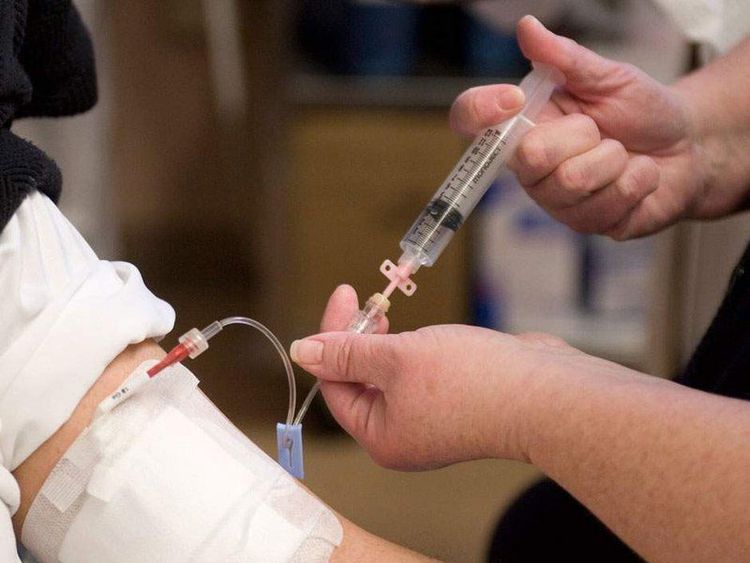
Hóa trị toàn thân IV thường được thực hiện thông qua ống thông hoặc cổng, đôi khi còn có sự giúp đỡ của một máy bơm
2. Research Methods
From July 2009 to November 2011, eligible patients who underwent radical surgery were randomly assigned to one of the following three arms for adjuvant treatment with an additional 6 cycles of chemotherapy:Branch 1: IV paclitaxel 80 mg/m2 weekly plus intravenous carboplatin (AUC 6 )/ 3-week cycle Branch 2: IV paclitaxel 80 mg/m2 weekly with carboplatin IP area (AUC 6) 3-week cycle Branch 3: IV paclitaxel 135 mg/m2 day 1, IP cisplatin 75 mg/m2 day 2 and IP paclitaxel 60 mg/m2 day 8 / 3-week cycle All study group patients were treated with bevacizumab 15mg/kg IV every 3 weeks / from cycle 2 to cycle 22 .
3. Research results
A total of 1,560 participants and a follow-up period of 84.8 months. Median progression-free survival (PFS) was 24.9 months in the carboplatin IV arm, 27.4 months in the carboplatin IP arm, and 26.2 months in the cisplatin IP arm. Subgroup analysis on 1,380 stage II/III patients with small lesions < 1cm (after surgery), with median PFS of 26.9 (IV-carboplatin), 28.7 (IP-carboplatin) and 27.8 months (cisplatin IP) and median overall survival (OS) for these patients were 35.9, 38.8, and 35.5 months, respectively.For the group completely free of lesions after radical surgery, the median overall survival (OS) for the first two arms was 98.8 months, 104.8 months, and the third arm alone, respectively. have numbers.
The median overall survival (OS) for all studies for the three arms was 75.5, 78.9 and 72.9 months, respectively.
Regarding side effects:
Grade 3 toxicity was more common in the cisplatin IP group (17.7%) and the carboplatin IP group (17.2%) than in the IV carboplatin group (11.5%; P = 0.008). . Grade 3 nausea and vomiting were more common (P < 0.005) in the IP cisplatin group compared with the IV carboplatin and IP carboplatin groups (11.0% vs 5.1% and 4.7%). Grade 3 hypertension was more common (P < 0.005) in the cisplatin IP group compared with the carboplatin IV and IP carboplatin groups (20.5% vs 11.9% and 14.3% respectively).
4. Conclusion of the study

Theo nghiên cứu, điều trị ung thư buồng trứng bằng phương pháp hóa trị trong phúc mạc IP là lựa chọn tốt nhất
Although the benefits of intraperitoneal chemotherapy were not evident in this large randomized clinical trial, the investigator said IP methods may still be beneficial in some patients.
In an article on Cancer, Dr. Sara Bouberhan of Beth Israel Deaconess Medical Center in Boston suggested that adding bevacizumab or changing the specifics of the dosing schedule could explain the lack of efficacy with IP therapy. The doctor noted that there are ongoing trials that could bring more clarity about the effectiveness of treatments.
Studies like these show the need for new strategies to further improve the treatment of advanced ovarian cancer. Research to find new anti-cancer drugs such as PARP inhibitors and immune checkpoint inhibitors will be an important next step in improving outcomes for unfortunate patients with this disease. Currently, two methods of treating ovarian cancer with intraperitoneal (IP) and systemic (IV) chemotherapy are applied at Vinmec Times City International Hospital.
Please dial HOTLINE for more information or register for an appointment HERE. Download MyVinmec app to make appointments faster and to manage your bookings easily.
Source: ASCO post 2019



